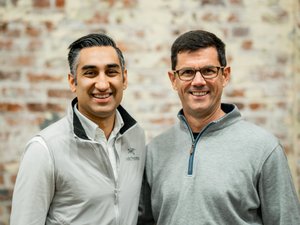
Previous installments of this series focused on the critically important entrepreneurial action of customer discovery. Understanding the customer’s problems in the context of a proposed solution almost always generates insights that require the entrepreneur to adapt.
Now, let’s consider how the entrepreneur responds and the importance of a realistic, fact-based assessment of the market.
Customer discovery sometimes confirms the entrepreneur’s original product or service with only minor changes. More typically, the process uncovers information that requires a substantial change known as a “pivot.” For instance, the founder may think that the newly invented material will be of interest to automotive manufacturers, but through customer discovery, learns that the real opportunity is in the home improvement sector. This pivot in target market changes the value proposition, the sales channels and other elements of the business model canvas.
Pivots can lead to a successful launch, but each pivot has an associated cost in time and money. A bootstrapped startup can survive only a limited number of pivots. Thus, customer discovery must be accomplished effectively and rapidly.
Pivots related to customer segment are typical as the founder gains understanding of customer problems and desires. Take, for instance, a spell-checking technology that initially focused on the obvious need for correct spelling among the broad segment of word processing users. As customer needs became known, a new segment was identified with optical character recognition software that could use spell checking to improve accuracy.
A frequent pivot observed among Ventureprise Launch participants is the need to “zoom-in.” Founders often assume their idea is broadly useful, but startup companies rarely succeed when they lack focus. Customer discovery can help the company zoom in by identifying early adopter customers.
Customer discovery and pivots help the founder find focus. But that is not enough for a successful business. Market size must be large enough and the competitive landscape must be vulnerable for the new company to succeed.
Startup entrepreneurs who claim giant market size (“billions of dollars”) for their embryonic venture turn off experienced investors. Savvy entrepreneurs will master three market size concepts: total available market (TAM), served available market (SAM), and target market. Steve Blank of Stanford compares these to food: TAM is the size of the pie, SAM is the size of your slice, and target market is how much you can eat.
TAM is the biggest number and is often found by referencing market research or investment reports (as in Gartner Group reports the market for customer relationship software is $36 billion). SAM is more useful since it limits the market size to customers reached by your channels and other characteristics.
Target market is the most useful since it defines what you can actually pursue in a defined period. The target market needs to be large enough to make launching a business worthwhile. You will not find this data in the library; customer interviews will help you define it.
Your company’s success in winning those customers will depend on the competitive environment. Customer interviews can help identify relevant competitors and their strengths/weaknesses. You will almost certainly need to investigate competitive offerings in more detail to develop a full understanding to guide your strategy.
Pivots, market size, and the competitive scene are critically important as the founder develops a focus and a business model. When customer segments and value proposition are well understood, the founder has a solid foundation.
Now, it is time to validate product fit and complete the business model. Topics for next time…
Paul Wetenhall is the executive director of Ventureprise, UNC Charlotte’s innovation and entrepreneurship center serving the UNC Charlotte campus and Charlotte region.
For more stories like this, subscribe to StartCharlotte’s free weekly startup newsletter.








